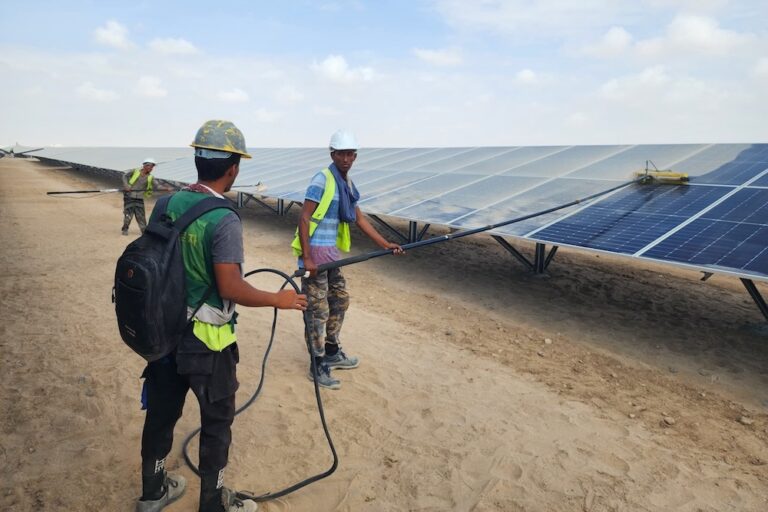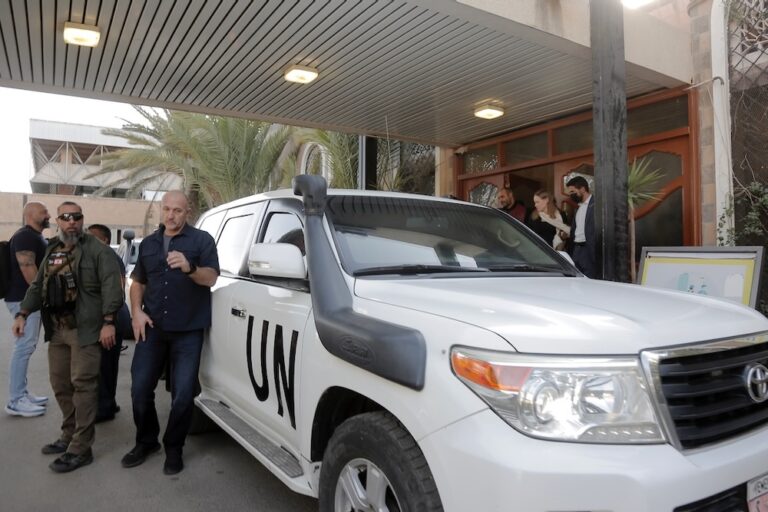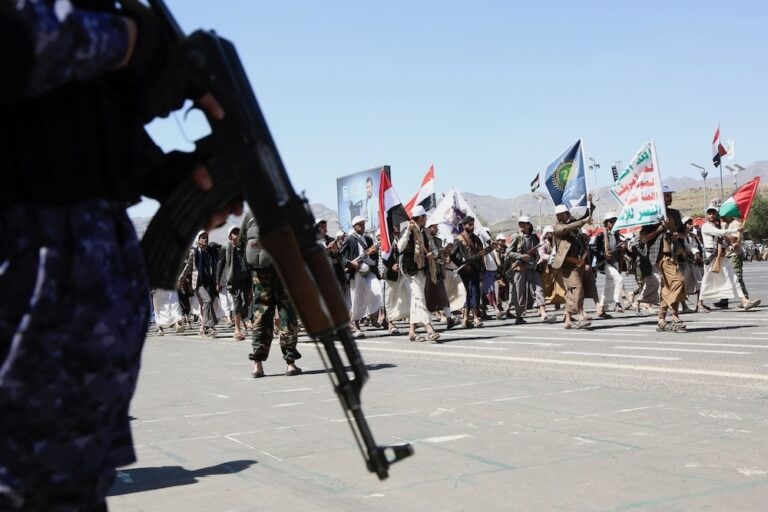Peaceful protests over worsening economic conditions were met with an arbitrary ban, undermining the right to assembly and ignoring the root causes of public discontent.
This statement was originally published on cihrs.org on 24 May 2025.
The Cairo Institute for Human Rights Studies (CIHRS) and the Yemen Coalition for Human Rights (YCHR) condemn the recent imposition of a sweeping ban on public protests, enacted 17 May by authorities in Aden. This unlawful measure represents a clear violation of fundamental human rights, particularly the rights to freedom of expression and peaceful assembly, as enshrined in both the Yemeni constitution and international legal standards.
The population in the South of Yemen, especially in Aden, has been enduring severe socio-economic hardships, including widespread electricity outages, critical shortages of water, and a rapidly deteriorating national currency, which has severely impacted purchasing power and access to basic necessities. These hardships have created widespread public frustration and discontent.
For several months now, residents of Aden have been taking to the streets in peaceful demonstrations to demand urgent governmental action. Instead of addressing these legitimate grievances, the authorities have recently opted to suppress public dissent by prohibiting demonstrations altogether – a response that fails to address the underlying causes of the protests and further exacerbates public anger.
CIHRS interviews with five protesters, (two women and three men) as well as videos we reviewed, clearly indicate that the decision to ban protests in Aden is arbitrary and is not justified by requirements of public security. The names of individuals interviewed have been withheld to protect their safety.
One of the women, who helped organize the protests, explained that the first women-led demonstration on 9 May arose spontaneously from a Facebook discussion group to protest the worsening economic conditions especially the prolonged electricity outages amid intense heat and humidity. “The humidity is extremely high nowadays,” she said. “We can’t breathe, and some of us feel dizzy most of the time with no electricity to have the ACs or even fans on.” A second demonstration followed on 16 May, and the protester continued, saying that “both events were peaceful and did not require formal permits, though prior notification was given before the second protest.”
On 17 May, a group of men organized another protest to voice similar economic grievances. According to a protester involved in organizing the event, the head of security in Aden met with them beforehand, requesting certain conditions: no specific chants, flags, or actions that could be seen as provocative. Following this discussion, the protest received verbal approval.
The demonstration drew an estimated 7,000 participants. While the vast majority remained peaceful, a small group of individuals began chanting against security forces and threw stones. In response, security personnel fired warning shots into the air and detained 25 to 30 young men. These individuals were reportedly released within three days. Importantly, no injuries were reported by any of the eyewitnesses nor in any official statement.
Later the same day, security authorities in Aden issued a statement announcing “a suspension of all public demonstrations and gatherings until safety conditions are verified and organizers adhere to legal guidelines.” However, the decision to impose a blanket and indefinite ban on public assembly, without a clear legal basis, procedural safeguards, or defined timeframe, is deeply worrying. Under international human rights law, particularly the principles of necessity and proportionality, any restriction on fundamental freedoms must meet strict criteria: it must be lawful, necessary in a democratic society, and the least restrictive means to achieve a legitimate aim. This ban fails to meet those standards.
The Aden authorities’ response risks criminalizing peaceful dissent and further alienating a population already suffering from acute socio-economic distress. We call on the local authorities to immediately rescind the protest ban and engage constructively with citizens to address their urgent needs, particularly access to electricity, water, and economic relief.



